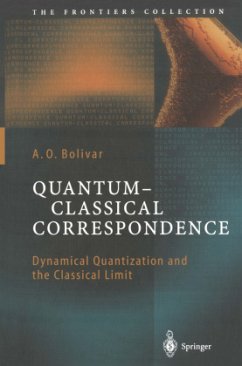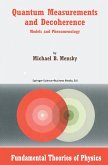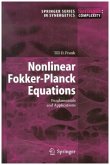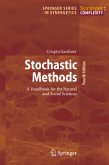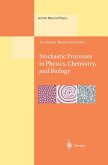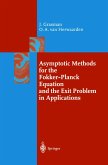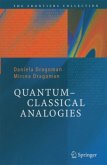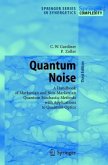At what level of physical existence does "quantum behavior" begin? How does it develop from classical mechanics? This book addresses these questions and thereby sheds light on fundamental conceptual problems of quantum mechanics. Quantum-Classical Correspondence elucidates the problem by developing a procedure for quantizing stochastic systems (e.g. Brownian systems) described by Fokker-Planck equations. The logical consistency of the scheme is then verified by taking the classical limit of the equations of motion and corresponding physical quantities. Perhaps equally important, conceptual problems concerning the relationship between classical and quantum physics are identified and discussed. Physical scientists will find this an accessible entrée to an intriguing and thorny issue at the core of modern physics.
From the reviews: "The present book aims to present the author's new approaches to quantization and classical limit ... . The book contains a lot of material concerning the applied methods before the author's propositions. There are enough references to cover the needs of the presentation. ... The book is interesting and easy to read." (Demetris P.K. Ghikas, Mathematical Reviews, 2005e) "The book is devoted to the quantization problem, i.e. how to do a quantum description starting from a classical one, and to dequantization ... . the mathematician will find a nice presentation of some classical and open problems in the theory of quantization and dequantization of open systems and a lot of references to classical articles." (Stefan Berceanu, Zentralblatt MATH, Vol. 1074, 2005) "The aim of the book is extremely ambitious. It is intended to given account of the relationship between quantum physics and classical physics. ... A quite comprehensive list of 272 references provides a very useful support for further study on the subject. The dynamical quantization proposed by the author surely is interesting in itself. ... In conclusion, the interested reader will find this book very challenging. The analysis and criticism of the proposed dynamical quantization method are a good argument of research." (Francesco Guerra, Meccanica, Vol. 42, 2007)

